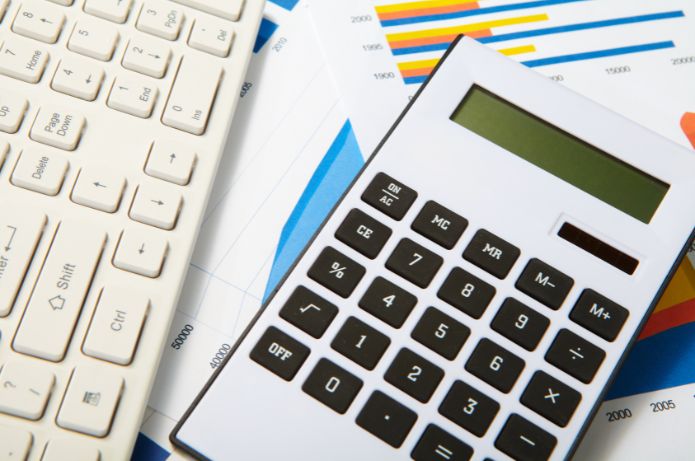“O resultado das vendas no varejo apresentou aceleração de 0,5% em setembro, ficando abaixo da expectativa de 1,1%. Apesar da melhora frente ao dado anterior de -0,2%, o ritmo ainda é considerado fraco, especialmente quando analisamos o desempenho anual, que desacelerou para 2,1%, ficando aquém da projeção de 3,6%. Essa frustração nas expectativas é resultado de um ambiente econômico desafiador, com alta dos juros e crédito mais restrito, o que limita o consumo das famílias. Para o setor, a recuperação gradual indica que o varejo ainda enfrenta dificuldades em retomar níveis de crescimento mais robustos, afetando o ritmo de expansão da economia como um todo”, Volnei Eyng, CEO da gestora Multiplike.
“O crescimento de 0,5% nas vendas do varejo brasileiro em setembro de 2024, conforme divulgado pelo IBGE, reflete uma resiliência do setor diante de desafios econômicos persistentes. Esse avanço, embora modesto, indica que fatores como a redução gradual da inflação e a manutenção de níveis de emprego têm sustentado o consumo das famílias. No entanto, o aumento contínuo do endividamento e as taxas de juros ainda elevadas podem limitar uma recuperação mais robusta. Para a economia como um todo, esse desempenho sugere uma retomada gradual, mas aponta para a necessidade de políticas que incentivem o consumo sustentável e a redução do endividamento das famílias”, João Kepler, CEO da Equity Fund Group.
“O crescimento de 0,5% nas vendas do varejo foi abaixo as expectativas do mercado, que projetavam um aumento mais agressivo para o período. Diversos fatores contribuíram para esse crescimento: redução da Taxa Selic: Banco Central reduziu a taxa básica de juros de 13,75% ao ano para 11,25% nos últimos sete meses, facilitando o acesso ao crédito e estimulando o consumo; promoções e descontos: a proximidade da Black Friday e outras campanhas promocionais incentivaram os consumidores a anteciparem suas compras, impulsionando as vendas no varejo; melhora no mercado de trabalho: a redução do desemprego e o aumento da renda disponível contribuíram para o fortalecimento do consumo das famílias. Em resumo, o crescimento nas vendas do varejo reflete uma combinação de fatores macroeconômicos favoráveis e estratégias eficazes do setor para atrair consumidores, sinalizando uma tendência positiva para os próximos meses”, Alex Andrade, CEO da Swiss Capital Invest.
“Em setembro de 2024, as vendas no varejo brasileiro registraram um aumento de 0,5% em relação ao mês anterior, conforme dados divulgados pelo IBGE. Esse resultado ficou abaixo das expectativas do mercado, que projetavam um crescimento mais robusto para o período. A alta foi impulsionada principalmente pelo desempenho positivo dos setores de hiper e supermercados, produtos alimentícios, bebidas e fumo. Apesar do avanço, o resultado modesto indica que o setor varejista ainda enfrenta desafios, possivelmente relacionados a fatores como inflação persistente e restrições de crédito, que podem estar limitando o poder de compra dos consumidores. Para a economia como um todo, esse desempenho sugere uma recuperação gradual, mas ainda aquém do potencial esperado, ressaltando a necessidade de políticas que estimulem o consumo e fortaleçam a confiança dos consumidores. Um alento para o dado divulgado hoje é que, em outubro, dados de empresas privadas, como o Índice de Varejo Stone, indicam que deve ocorrer uma aceleração nas vendas do varejo. Isso é resultado do aquecimento do mercado de trabalho e do aumento da renda, fatores que elevaram o poder de compra dos consumidores”, Felipe Vasconcellos, Sócio da Equus Capital.7
“Esse crescimento abaixo da expectativas reflete que, apesar dos dados que revelam desemprego em baixo, PIB acima de 3% e uma suposta economia aquecida, na última ponta, no consumo, isso não está se refletindo na prática. O comércio e a indústria precisam entender que, para crescerem, hoje, é preciso inovar e criar novas fontes de receita. Essa é a fórmula que funcionou para nós em 2024”, Roberto Jalonetsky, CEO da Speedo Multisport.
“O crescimento de 0,5% nas vendas do varejo, reflete uma ligeira melhora no setor, mas ainda está aquém das expectativas de uma recuperação mais sólida. Embora o dado tenha sido positivo em relação ao mês anterior, a expansão ainda é modesta, especialmente quando comparada ao desempenho do ano passado. A desaceleração no ritmo de crescimento anual, que caiu para 2,1%, aponta para a persistência de desafios estruturais, como a alta da inflação e a elevação das taxas de juros, que continuam a impactar o poder de compra das famílias”, Carlos Braga Monteiro, CEO do Grupo Studio.
“As vendas no varejo subiram 0,5% em setembro, um crescimento abaixo das expectativas do mercado, que projetava um aumento de 1,1%. Embora tenha ocorrido uma recuperação após a queda de 0,2% em agosto, o desempenho ainda reflete um consumo concentrado em itens prioritários, como alimentos e medicamentos. Esse crescimento moderado indica que a inflação e os juros elevados continuam impactando o poder de compra dos consumidores, limitando o avanço em setores mais discricionários, como móveis e eletrodomésticos, que registraram quedas. Para a economia, o resultado reflete um ritmo de recuperação lento no setor, com a necessidade de políticas de estímulo ao consumo e cautela nos reajustes de juros, que podem afetar ainda mais o consumo. Para investidores, o momento exige atenção ao setor de bens essenciais, que mostra maior resiliência frente a um cenário de restrição econômica”, Sidney Lima, Analista CNPI da Ouro Preto Investimentos.
“O acréscimo nas vendas do varejo em setembro reflete uma recuperação lenta, abaixo das expectativas, evidenciando os desafios econômicos, como juros altos e inflação, que ainda limitam o poder de compra das famílias. Para o setor varejista como um todo, o cenário aponta para uma retomada mais lenta, mas com potencial aceleração caso medidas eficazes de estímulo ao consumo sejam adotadas”, Jefferson Laatus, chefe-estrategista do grupo Laatus.


